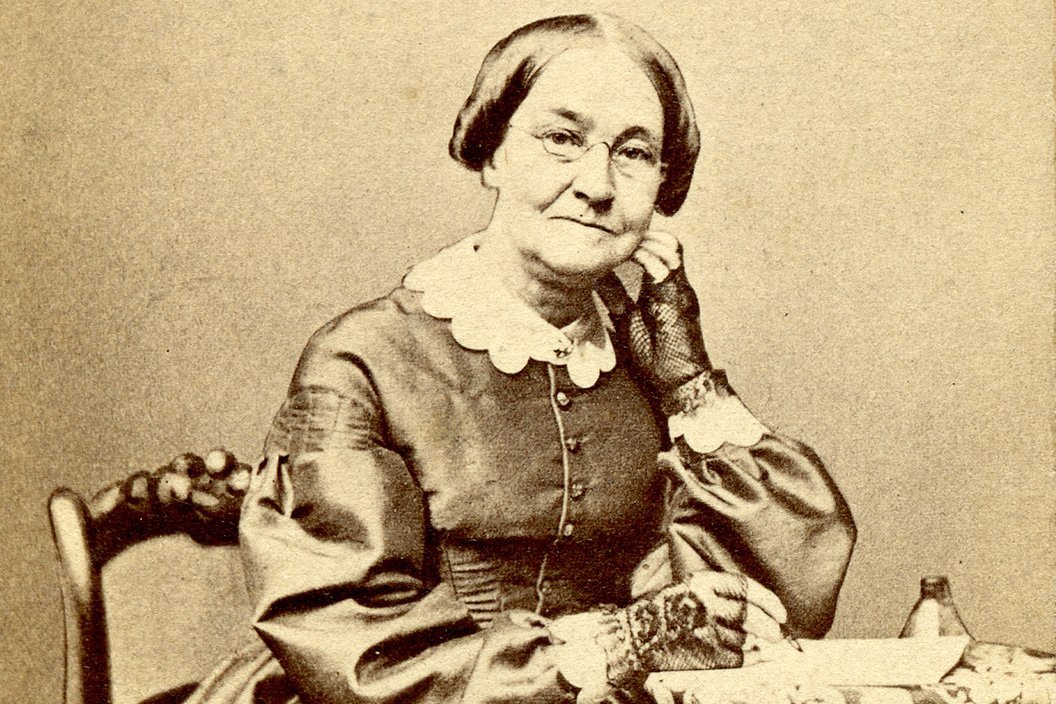Swarthmore College Receives Grant from The Pew Center for Arts & Heritage for Rosine Association 2.0

Mira Sharpless Townsend led the establishment of the Rosine Association, which provided housing, work, and education for marginalized women in Philadelphia.
Swarthmore College received a grant recently from The Pew Center for Arts & Heritage for a project to form Rosine Association 2.0, an “interdisciplinary collective of artists, harm-reduction leaders, archivists, and women involved in today’s street economies, such as drug use, sex work, and trafficking.”
The mission of Rosine 2.0 is to facilitate harm-reduction through the development of artistic works and a community-based archive. These socially engaged works will serve as a lens through which others can understand Philadelphians involved in marginalized communities and street economies.
The original Rosine Association was formed in 1848 by Philadelphia Quaker and reformer Mira Sharpless Townsend to provide home, work, and education to women on whom society had turned its back. The Rosine House residents, many of them sex workers or women who had lived on the streets, were able to earn money for themselves with their newly gained skills, selling their wares in an adjacent store. Setting the organization apart from the better-known Magdalen Society was that it was run completely by women, for women.
Directed by College Librarian Peggy Seiden and Friends Historical Library Curator Jordan Landes and led by artistic curator Carol Stakenas, members of the Rosine Association 2.0 will work with selected artists to develop artistic work in three phases, taking inspiration from Townsend’s archive materials housed in the FHL.
In the first phase, they will learn about the original association and form creative teams that include a lead artist and harm-eduction leaders to develop proposals for site-responsive, community-driven projects. In the second phase, artists will be in residence in Philadelphia and facilitate collective workshops. Finally, the ideas and outcomes will be shared in a series of exhibitions, public art interventions, and public programs tentatively slated for spring 2023.
Rosine Association 2.0 seeks to update its predecessor by serving not only cisgender women, but also a diverse group of Philadelphians while emphasizing women, transgender, and nonbinary people. According to the project proposal, it also aims to confront “outdated judgments” of the Rosine House residents that appear in the archives.
“Ultimately, the intentions of the original Rosine Association were good, but intentions alone are not impact, so the legacy of the original Rosine Association’s work is more complex,” says Landes. “Also, while the creators of the records of the Rosine Association, including Townsend, express few judgments of the women they are aiding, their language can feel harmful to us now.”
Seiden adds: “The new Rosine will center those most impacted by the street economies, and will employ art as a form of harm-reduction to create a more equitable association. We are excited to collaborate with harm-reduction organizations from across Philadelphia who are leaders within their field. Together with our selected artists, they will facilitate careful and radically inclusive projects that enact art as harm-reduction.”
Swarthmore College previously received a grant from The Pew Center for Arts & Heritage in 2017 for the Friends, Peace, and Sanctuary project, which brought together book artists and members of Philadelphia’s Iraqi and Syrian refugee communities to create artists’ books that amplified personal narratives of displacement, immigration, and sanctuary.


